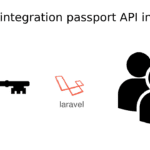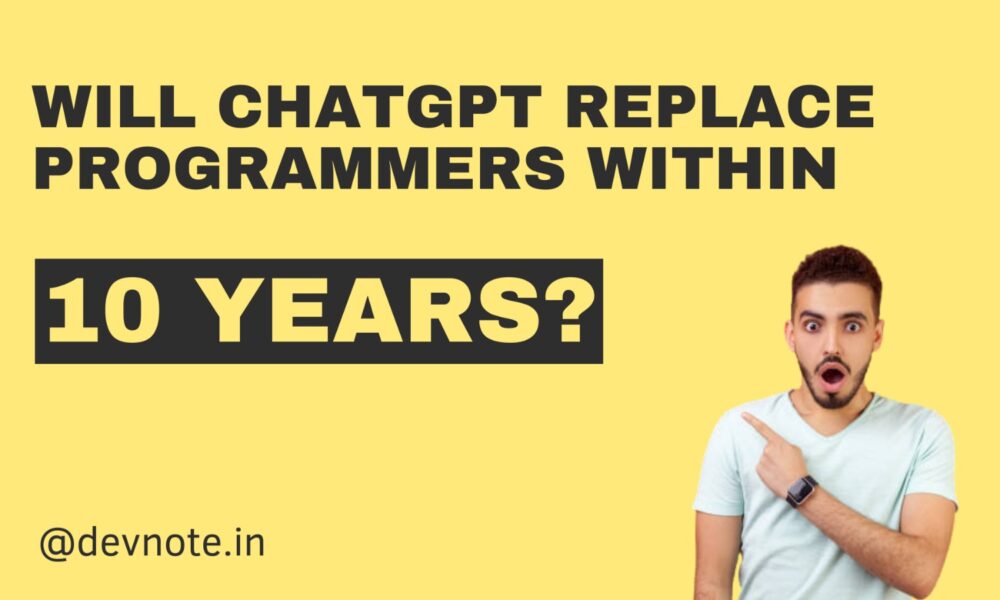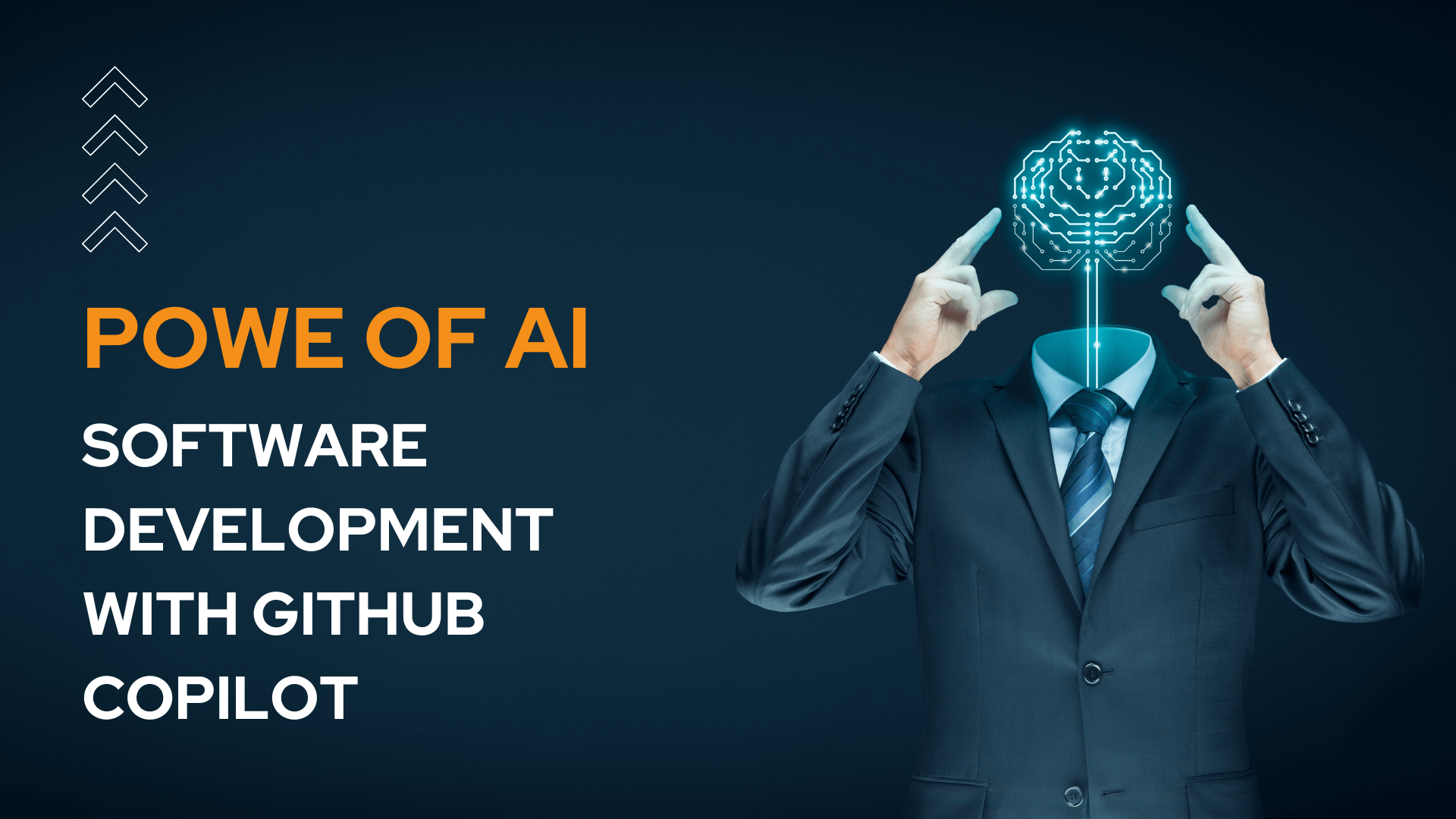Will ChatGPT Replace Programmers Within 10 Years?
As artificial intelligence continues to advance at a rapid pace, many experts have begun to question whether or not it will eventually replace programmers. ChatGPT, a cutting-edge language model developed by OpenAI, is one such technology that has been touted as a potential game-changer in the field of software engineering. In this article, we will explore the potential impact of ChatGPT on the programming industry, and whether or not it is likely to replace human programmers within the next 10 years.
Table of concept
1 Introduction
As technology continues to evolve at an unprecedented rate, many industries are experiencing significant disruption. The programming industry is no exception, with many experts predicting that artificial intelligence (AI) will eventually replace human programmers. In recent years, ChatGPT has emerged as one of the most promising technologies in the field of AI, raising the question of whether or not it will replace programmers altogether.
2 What is ChatGPT?
ChatGPT is a cutting-edge language model developed by OpenAI, one of the world’s leading AI research organizations. The model is based on the GPT-3.5 architecture and is capable of generating human-like text that is virtually indistinguishable from that written by a human. ChatGPT has been used in a wide range of applications, from chatbots to content generation.
3 How Does ChatGPT Work?
ChatGPT uses a process called deep learning to analyze vast amounts of data and learn from it. The model is trained on a vast corpus of text, which allows it to generate coherent and meaningful responses to user input. ChatGPT uses a technique called “unsupervised learning,” which means that it learns from the data without any explicit instruction from a human.
4 Why Do Some People Believe ChatGPT Will Replace Programmers?
There are several reasons why some people believe that ChatGPT will eventually replace programmers. First and foremost, the technology is incredibly powerful and is capable of generating human-like text at an unprecedented scale. This means that it could potentially be used to generate code or even entire applications, bypassing the need for human programmers altogether.
5 Will ChatGPT Replace Programmers?
While ChatGPT is undoubtedly a powerful technology, it is unlikely to replace programmers altogether within the next 10 years. There are several reasons for this. First, programming is a highly complex and nuanced field that requires a deep understanding of mathematics, logic, and problem-solving. While ChatGPT is capable of generating coherent and meaningful text, it is not capable of understanding the underlying principles of programming.
6 The Future of ChatGPT and Programming
While it is unlikely that ChatGPT will replace programmers within the next 10 years, the technology is likely to have a significant impact on the programming industry. ChatGPT can be used to automate many of the more mundane and repetitive aspects of programming, freeing up human programmers to focus on more complex and creative tasks.
7 The Rise of ChatGPT
ChatGPT is a language model developed by OpenAI, the same company that created the widely-used GPT-3 model. While GPT-3 is capable of generating coherent, human-like responses to a wide range of text-based inputs, ChatGPT is specifically designed for conversational interactions.
As a result, ChatGPT is ideally suited for use in chatbots, virtual assistants, and other conversational AI applications. Its ability to understand natural language inputs and generate appropriate responses makes it a valuable tool for businesses looking to automate customer support or improve their online interactions.
8 The Benefits of ChatGPT for Programmers
For programmers, ChatGPT offers a number of potential benefits. First and foremost, it can save time and effort by automating certain repetitive tasks, such as responding to customer inquiries or generating boilerplate code.
In addition, ChatGPT can serve as a valuable tool for prototyping and testing new software applications. By generating realistic responses to user inputs, it can help developers refine their designs and identify potential issues before deploying a new system to production.
Finally, ChatGPT can help bridge the gap between technical and non-technical team members. By providing a conversational interface to complex software systems, it can help non-technical stakeholders better understand the capabilities and limitations of these systems.
9 The Drawbacks of ChatGPT for Programmers
Of course, there are also potential drawbacks to the use of ChatGPT in programming. One of the most significant is the potential for ChatGPT to automate away jobs that were previously performed by human programmers.
While ChatGPT is unlikely to replace programmers entirely, it could certainly reduce the demand for certain types of programming jobs. For example, developers who specialize in creating chatbots or virtual assistants may find their skills less in demand if these systems can be created more easily and quickly using ChatGPT.
In addition, there is the potential for ChatGPT-generated code to be less secure or reliable than code written by human programmers. While ChatGPT is capable of generating high-quality responses, it may lack the nuance and context necessary to produce truly secure and reliable code.
10 The Future of Programming with ChatGPT
Despite these potential drawbacks, the future of programming with ChatGPT looks bright. As AI technologies continue to advance and become more sophisticated, ChatGPT is likely to become an increasingly valuable tool for programmers and businesses alike.
Ultimately, the success of ChatGPT and other AI technologies in the programming space will depend on their ability to work in harmony with human programmers. Rather than replacing human workers, these technologies are likely to augment and enhance their capabilities, making it easier and more efficient to create high-quality software applications.
11 Frequently Asked Questions
ChatGPT is a cutting-edge language model developed by OpenAI that is capable of generating human-like text at an unprecedented scale.
While it is unlikely that ChatGPT will replace programmers within the next 10 years, the technology is likely to have a significant impact on the programming.
12 Conclusion
While the rise of ChatGPT and other AI technologies is undoubtedly changing the programming industry, it is unlikely that these technologies will replace human programmers entirely. Instead, they are likely to be used to augment and enhance the work of human programmers, making the industry more efficient and effective. As such, programmers should embrace these technologies as tools to help them do their jobs better, rather than viewing them as a threat to their livelihoods.








